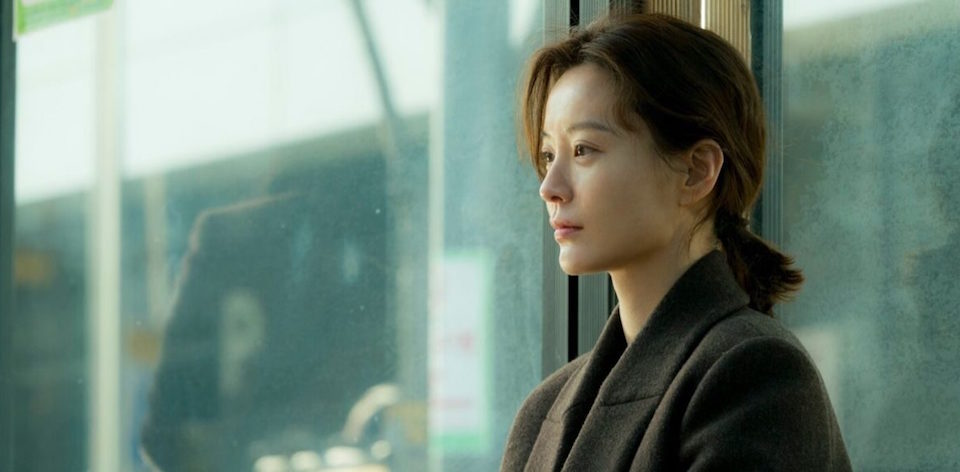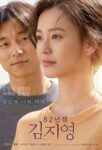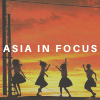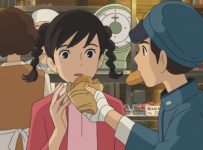Originally released in its native South Korea in 2016, Cho Nam-Joo’s book shot to fame in South Korea when floor leader of the Justice Party’s Roh Hoe-chan gifted the book to President Moon Jae-in. The book, which concerns a stay-at-home mother with depression, was inscribed with a message that read “Please embrace ‘Kim Ji-young Born ’82.'”
The film adaptation of KIM JI-YOUNG, BORN 1982 (82년생 김지영) arrives in a timely fashion as the global #MeToo movement shares similar true tales of everyday discrimination. Most descriptions will tell you that the titular Kim Ji-Young (Jung Yu-Mi) is an ordinary woman in her 30s who starts experiencing signs of being someone else. Of course, that spooky sounding plotline speaks more to the ‘otherness’ she has been experiencing her whole life as a woman in Korea.
This film signals the feature directorial debut of actor Kim Do-young, perhaps best known for roles in films like The Righteous Thief (2009). In translating the novel to the screen, she and co-writer Yoo Young-ah (On Your Wedding Day) have managed work Cho’s vignettes into a single narrative while maintaining the cumulative impact of institutionalised sexism. From dealing with groping as a schoolgirl to familial and societal expectations of Ji-young as a mother, her wants and needs have consistently been secondary to those of her brother, husband, and father.
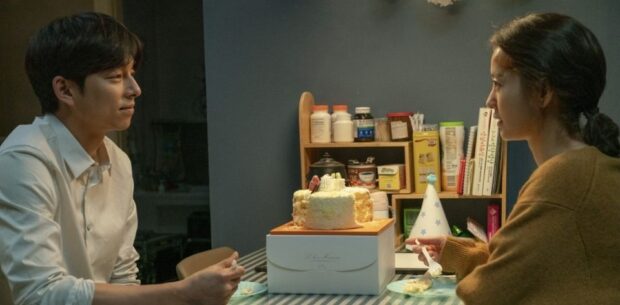
Ostensibly about indoctrinated misogyny in South Korea, there’s a universality to Ji-young’s experience. Following the book’s structure of a life as a case study, albeit without the bookends of a male doctor analysing her experience, Ji-young’s life might be viewed by the men in her life extraordinary but the truth is that it’s the cumulative and systemic micro (and let’s face it, macro) aggressions that determine her fate.
Early in the film, Ji-young overhears someone referring to her coffee break with child in tow as a “comfortable life,” a viewpoint shared by many men in her circle. Her father gets easily outraged by any woman’s role that is not child-rearing, while Ji-young’s mother-in-law is furious that her return to work might jeopardise her own son’s career.
Jung Yu-Mi – known for her roles in Oki’s Movie, Train to Busan and Psychokinesis – delivers a powerfully understated and award-winning performance. Her stoicism in the face of prosaic prejudice gives added weight to the film. Equally fierce is Ji-young’s mother, who’s vocal opposition to the men in their lives leads to a semi-breakdown on screen. The men, of course, stand about impotent in the face of emotion.
When the book and film were released in Korea, headlines spoke of it increasing tensions in the local market and couples breaking up over it. The messaging is not necessarily subtle, but neither is the discrimination against women. It’s precisely the ordinariness of these (typically male) viewpoints that, when taken together in a single document such as this, demonstrate how stacked the system is against career-minded women. Yet it would also be very easy to dismiss this as a Korean problem, and if this timely tale shows us anything it’s that society has a collective culpability in perpetuating it or a responsibility to instigate change.
2019 | South Korean | DIRECTOR: Kim Do-young | WRITER: Kim Do-young, Yoo Young-Ah| CAST: Jung Yu-mi, Gong Yoo, Kim Mi-kyeong | DISTRIBUTOR: Little Monster Entertainment/Korean Film Festival in Australia (AUS)| RUNNING TIME: 120 minutes | RELEASE DATE: 29 October – 5 November 2020 (KOFFIA)
Read more coverage of South Korean cinema from the silent era to festivals and other contemporary releases. Plus go beyond Korea with more film from Asia in Focus.

